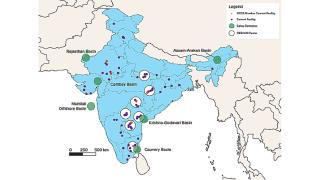The production of refuse-derived fuels (RDFs) from municipal solid waste (MSW) offers one solution to address the growing waste issue in countries with increasing populations such as India. At the same time, these RDFs enable the cement industry to substitute fossil fuels and reduce its CO2 emissions. By Palash Kumar Saha and Dr Kåre Helge Karstensen, SINTEF, Norway, and Kannan Vairavan and Vinoth Balakumar, CII-GBC, India.
At present municipal solid waste (MSW) in India is generally unsegregated with high moisture content, low calorific value, odour and a wide range of particle size. According to a planning commission task force report in 2014,1 of the 62Mt of MSW generated in urban India, 12Mt is combustible fraction which can be potentially converted into refuse-derived fuel (RDF), thereby replacing 8Mt of coal. Currently, more than 30 per cent of India’s population live in cities and this figure is projected to rise to 50 per cent by 2050.
